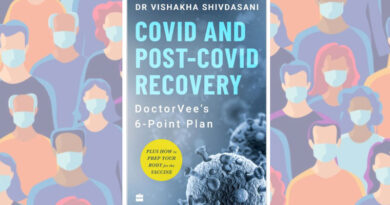Effective Ways to Help Others During COVID-19
The COVID-19 pandemic has affected nearly everyone in some way or another. In addition to a rapidly rising death toll and ballooning infection rates, the novel coronavirus has forced many of us to change the way we live our lives. Daily routines that once seemed mundane now carry a tremendous amount of risk, facilitating the need for us to stay home whenever possible. With so much suffering brought on by the pandemic, it’s only natural that many of us would want to play an active role in helping those hardest hit. Anyone looking for effective ways to help others during the current crisis should consider the following options.

Run Errands for High-Risk Individuals
Senior citizens and immunocompromised individuals are considered high-risk individuals. Although COVID-19 is highly infectious, the aforementioned groups are likely to be hardest hit by it. With this in mind, consider running essential errands for any high-risk individuals in your life. For example, if you have elderly parents or grandparents you wish to keep out of harm’s way, volunteer to buy groceries, pick up prescriptions and run other errands that involve leaving the house.
Of course, in the interest of preserving your own safety, take care to don a mask and other pieces of PPE when carrying out these errands. Furthermore, take advantage of curbside pickup options whenever they’re available. Since virtually every grocery store and pharmacy offers them (for free in many cases), there’s no reason you shouldn’t be using them. This will minimize contact with others and help slow the spread of the novel coronavirus.
Educate Friends and Family Members
The amount of misinformation surrounding the current pandemic is nothing short of concerning. Because of false claims made by agenda-driven media outlets and public figures, a staggering number of Americans believe that COVID-19 isn’t a substantial threat, with a sizable chunk of people dismissing it as a “hoax.” Not only does this type of thinking place your friends and family members at risk, it puts everyone these individuals encounter in danger, as well. If someone doesn’t believe the novel coronavirus is cause for concern, they’re less apt to wear PPE or take common sense precautions and likely to engage in outright dangerous behavior.
Watching loved ones continually make ill-informed decisions during a global pandemic can be equal parts frustrating and deeply concerning. So, if someone you care about has routinely repeated misinformation from dubious sources, make an effort to educate them on the threat COVID-19 poses. Even under the best of circumstances, people are often loath to change their minds, so try to come at this from a place of understanding. There’s no guarantee that these individuals will take what you say to heart, but at least you’ll have tried – and in the end, that’s all you can do.
Conduct Mental Health Check-ins
Unsurprisingly, this pandemic has had a number of negative impacts on people’s mental health. Individuals who already suffered from psychological problems have seen these issues exacerbated, and people who have never had any significant mental health ailments are now experiencing them for the first time. To help ensure that the people you care about are able to maintain a healthy mindset, make a point of conducting regular mental health check-ins with loved ones via Skype and other video calling apps. Knowing that someone special is thinking about you can bring tremendous comfort to people grappling with psychological distress.
Charitable Giving
There has never been a more crucial time for us to take care of one another. As such, if you have the financial resources to spare, consider making a donation to a charitable cause. Charities like No Kid Hungry are always accepting donations and will be happy to receive anything you can send their way.

To say that the COVID-19 pandemic has caused tremendous suffering would be an understatement. In addition to mass sickness and death, the current crisis has taken a tremendous toll on countless people’s mental health and psychological wellbeing. During times like these, support, compassion and understanding can mean a great deal to a great many people. So, if you’ve been looking for ways to lend a helping hand to the people most affected by the novel coronavirus, the options discussed above may be worth considering.



